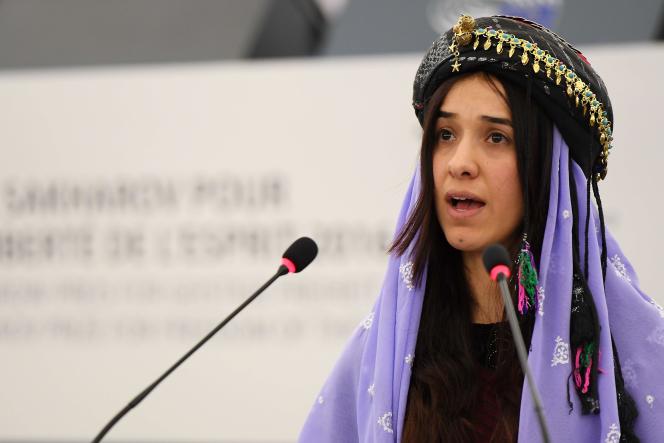On the occasion of the commemorations organized nine years after the “atrocities” perpetrated by the terrorist organization against the Yazidi minority, the United Kingdom officially recognized on Tuesday 1er August, that the Islamic State (IS) organization had committed “acts of genocide” against the Kurdophone minority in 2014 in Iraq.
Nobel Peace Prize winner, Yezidi Nadia Murad hailed a “significant gesture”expressing his hope that “the UK is now seeking justice for the victims” by prosecuting UK-born fighters of this jihadist organization. ‘The world cannot afford to let ISIS members go free’under penalty of sending the message that “one can kill and rape with impunity”she added.
“British recognition is an important step”Yazidi activist Murad Ismael told Agence France-Presse, saluting from Baghdad “the tireless work of our Yazidi friends in the UK who ensured that this genocide was neither overlooked nor forgotten”. He stressed the importance of recognition for “healing the deep wounds of the genocide”.
This is the fifth time that the United Kingdom has officially mentioned genocide, after the Holocaust, Rwanda, Srebrenica in Bosnia and acts committed in Cambodia.
Kurdish-speaking minority
“The Yazidi people have suffered immensely at the hands of [l’EI] »said in a press release British Foreign Secretary Tariq Ahmad. “Justice and accountability are essential for those whose lives have been destroyed”he added, stressing that this recognition “historical” born “only strengthens” the UK’s commitment to “receive the compensation due to them and have access to meaningful justice”.
The UK decision follows the conviction in Germany of a former IS fighter. On November 30, 2021, judges at the Frankfurt Regional High Court sentenced Taha Al-Jumailly to life for “genocide”, “crime against humanity resulting in death”, “war crimes” and “complicity in crimes of war “. He had been found guilty of having, during the summer of 2015, in Fallujah, Iraq, left a 5-year-old Yazidi girl to die of thirst, whom he and her mother had enslaved. German justice was thus the first to recognize such a qualification for crimes against the Yazidi community. A decision qualified as“historical” by human rights organizationss.
This recognition has since been carried out by numerous parliaments – German MPs in January – and international organisations.
Hundreds of thousands displaced
In international law, genocide has been recognized since 1948 by the United Nations Convention, which lists a series of crimes constituting it, including the murder committed “with intent to destroy, in whole or in part, a national, ethnical, racial or religious group”.
The IS had swept in August 2014 on Mount Sinjar, the historic home of the Yazidi minority in northern Iraq. Thousands of men from this Kurdish-speaking community, whom the jihadists consider “heretics” because of their monotheistic esoteric religion, had been massacred. Women had been abducted and sold as “wives” to jihadists or reduced to sexual slavery; the children, enlisted.
After the rise of IS in 2014, Iraq proclaimed its victory over the jihadists in 2017, who then lost their last Syrian stronghold in 2019. Even today, bodies are exhumed from mass graves in Sinjar. More than 2,700 people are missing, according to the International Organization for Migration.
On July 27, several Yazidi civil society organizations issued a joint statement asking the Iraqi government for 1.5 billion dollars (1.37 billion euros) “for the reconstruction of public infrastructure and private housing in the district of Sinjar”. Years after the defeat of IS, reconstruction is stalling. Some 200,000 people from the region, Yazidis or members of other communities, are still displaced and cannot return.
